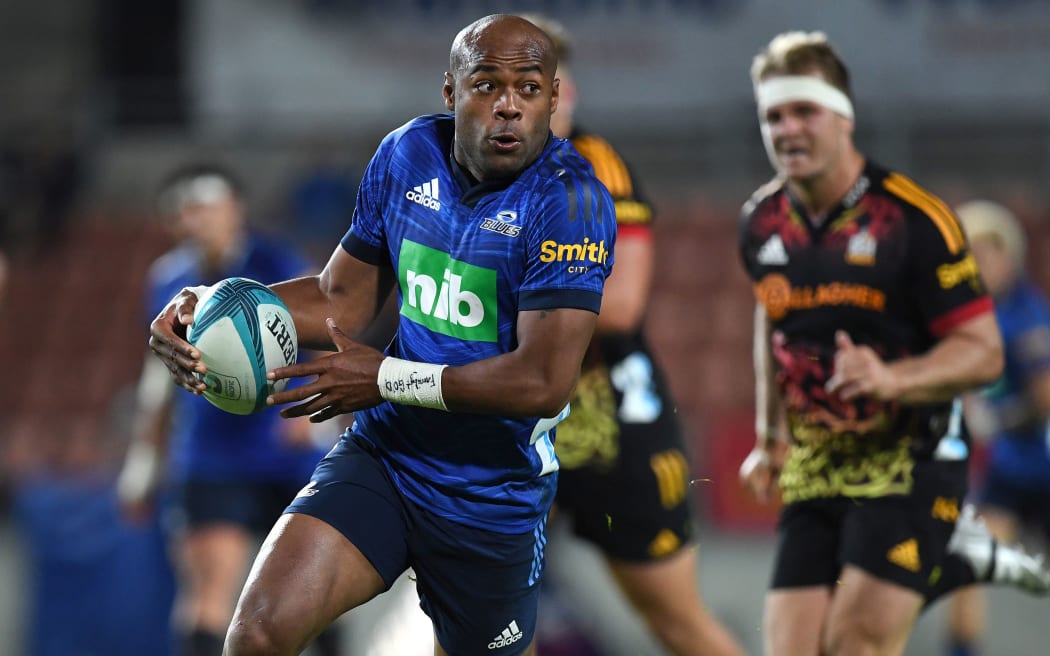
Photo: © Copyright Jeremy Ward / www.photosport.nz Photosport Ltd 2022
A recent decision by an Australian family to send their son to Rotorua Boys High to further his career has highlighted the importance of players feeling "culturally safe".
16-year-old Kaylan Morris is a First Nations Australian from New South Wales and he's heading to New Zealand to finish his schooling, with his mother feeling he has a better chance of reaching his goal of playing for the Wallabies by attending Rotorua Boys High.
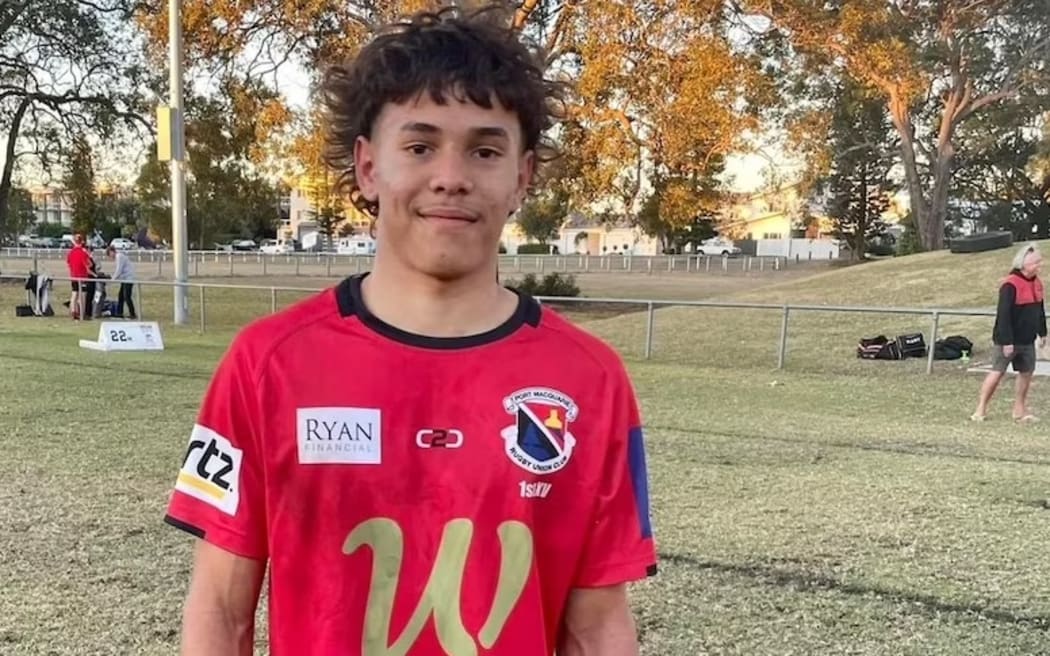
First Nations Australian player Kaylan Morris will attend high school in New Zealand to try to further his rugby career. Photo: Supplied
Kristal Kinsela told the ABC (Australian Broadcasting Corporation) that she didn't believe Rugby Australia (RA) adequately supported the game in regional areas through its funding and resources and felt young Aboriginal players, who live outside the capital cities, were often neglected.
"I don't think Rugby Australia cares," Kinsela said.
She also told the ABC she was loathe to send Morris to a private school in Brisbane or Sydney as she doesn't believe they're "culturally safe" for an Aboriginal student .
She feels they are "elitist" and ignorant of cultural diversity.
So what is New Zealand Rugby (NZR) doing to ensure its Pasifika players, who contribute a huge amount to the sport in Aotearoa, have their culture understood, respected and embraced in the teams they play for, whether they be amateur or professional?
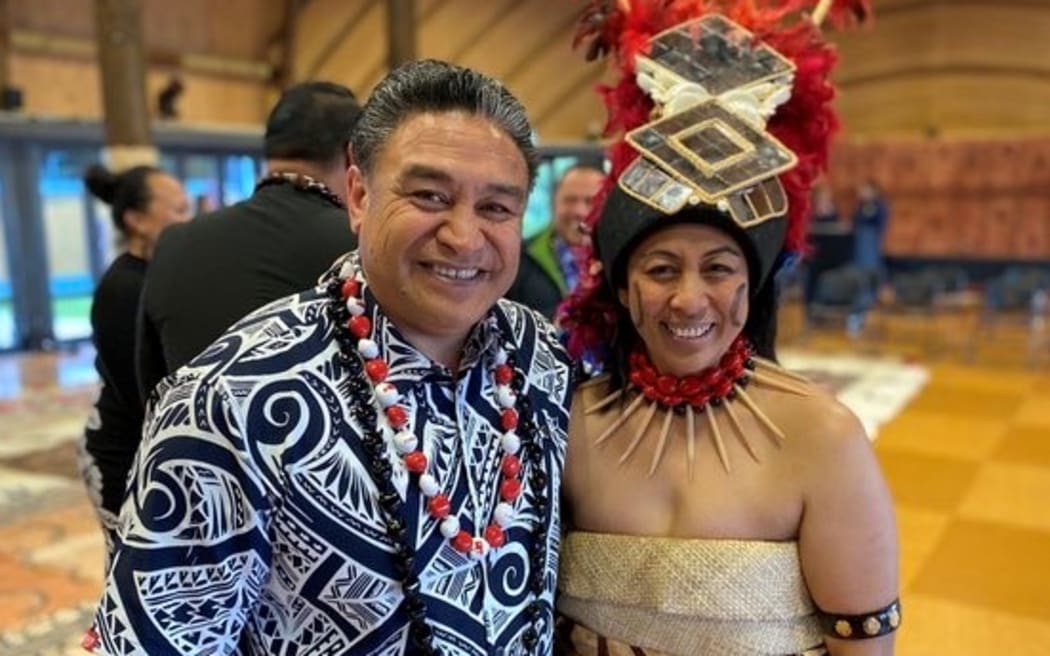
Saveatama Eroni Clarke. Photo: PeninaJoy / Coconet
NZR Pasifika Engagement Manager, former All Black Saveatama Eroni Clarke, said the importance of "cultural safety" can't be overstated.
"That and and cultural competency is really important because it allows someone of a different culture or ethnicity to have an influence in terms of how they want to be treated. If that happens they feel safe, they feel they belong, they have a sense of identity and belonging and whether it's a team or a corporation. It means they can feel safe to be their genuine selves in those environments.
"We have in our Pacific cultural customs is what we call le vā (or va'a/vaha). Vā means space. The vā exists in three areas; Vā exists between people to people and what we do in terms of relationships, but also vā exists between the people and the environment. So for Pacific people there's the moana, the sea, the connection to the stars and the way they were able to navigate themselves around the vast ocean of the Pacific.
"In a rugby context, it's about the ability to be able to have that relationship to the club, to the Provincial Union or franchise that you play for that you feel that sense of connection, that sense of belonging. For a player within a team, that sense of welcome, that sense of 'this is my team', 'I feel safe and I feel I can contribute without holding back whoever I am'. That connection, that vā between our players to the team is really important."
Clarke said one of the goals of NZR's recently launched Pasifika strategy is to create that vā for Pasifika players at all levels of the game and while he believes many teams are embracing those ideas, he admits it hasn't always been the case, recalling his time under former All Blacks coach Sir Graham Henry at the Auckland NPC side.
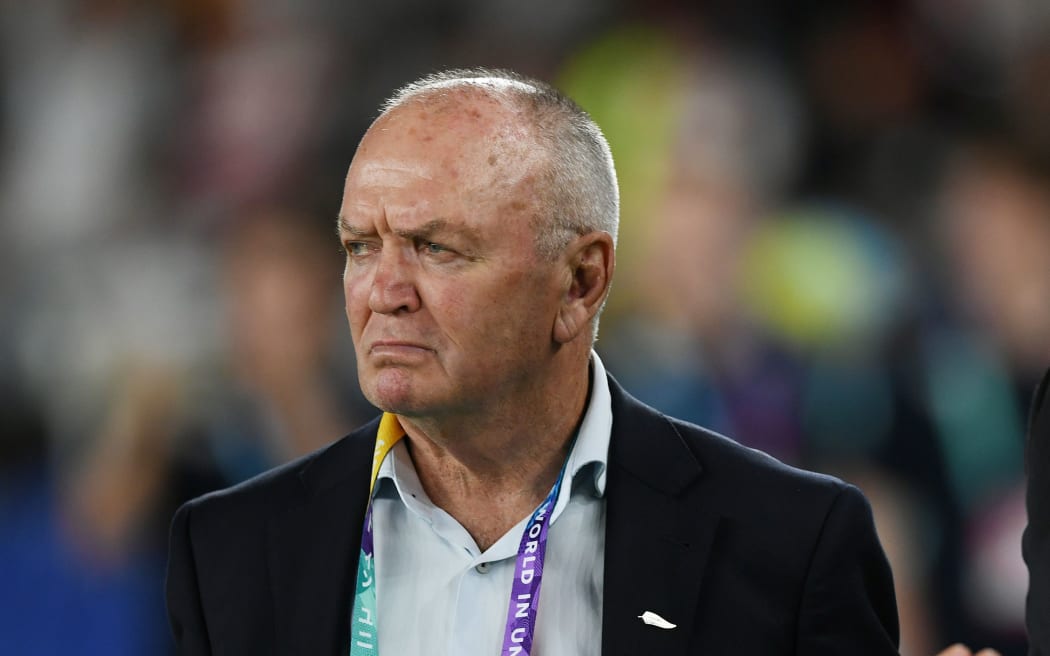
Graham Henry. Photo: PHOTOSPORT
"Graham had a one style fits all coaching style. His style was bark, swear and shout, expecting that all the players would be motivated by that.
"However, he saw the Pacific players were not responding the way he expected and because of that, a lot of them were dropping balls and doing things that were completely out of character with why he selected them. As a consequence of that he started to drop these players and think 'they're not the players I thought they were'. So he brought in new players and many were Pacific and the same thing kept happening.
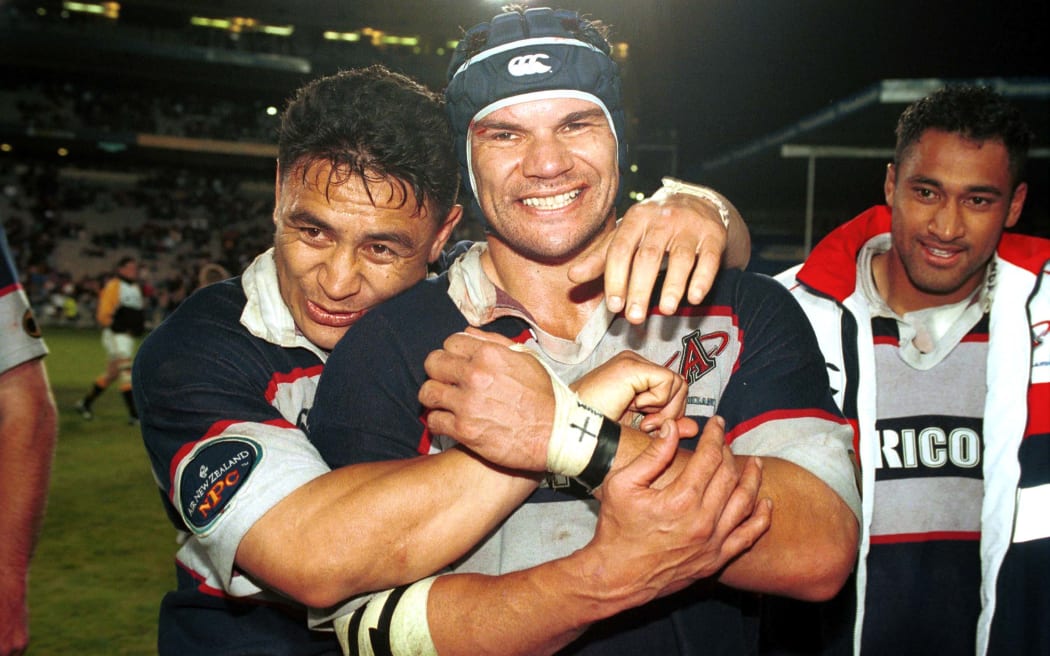
Michael Jones and Eroni Clarkel. Auckland v Wellington, Final. Auckland NPC final, Eden park, Rugby Union, 1999. PHOTO: photopsport.co.nz Photo: © PHOTOSPORT www.photosport.co.nz
"So he stopped Sir Michael (Jones) and I and said, 'How do I get the best out of Pacific players?'. We said to him that when you shout, swear and bark at particularly Pacific players, in their mind they're thinking they've done something to upset the coach, he doesn't like me and between that and the other external pressures they were facing, they started to make mistakes.
"Graham realised he was the common denominator and he realised the landscape of his team had changed and so he changed his whole philosophy and the whole team responded in a positive way. He became a lot more inclusive and was far more aware of what he was doing because it's not just what you say but how you say it. So as he began to change his approach, Auckland began to experience more success as they built towards Super Rugby.
"Graham realised his change in approach gave him a deeper level of loyalty and respect from the players, particularly his Māori and Pacific players. That's one example I can give where someone realised that they needed to change, Graham knew he couldn't just keep dropping players, he needed to change his approach, so credit to him."
Clarke said the lessons Sir Graham learnt could be applied to many situations in New Zealand rugby.
"There's not a lot of shouting from authority figures, maybe your mum and dad if they're angry with you, but not often. When you're in a western context, the navigating of two worlds can be hard. That vā, that space between people to people, it's important to nurture that first and when a coach is barking and swearing and yelling off the bat, you feel a disconnect straight away.
"Building that vā is really important for relationships, in a western context you could think of vā as building rapport with people. That's why Māori, when you meet, you would do your whakawhanaungatanga, your pepeha. For Pacific people it's also important for us to take time to connect, it's the first thing we do. In our cultures that answers the question of who are you?
"When you can exchange those across the vā, you're building relationships and nurturing the vā and building trust which is an important value in a Pacific context. When those things aren't done first and foremost that vā doesn't exist. Those are the kinds of things that need to be taken into consideration around cultural safety, cultural competency, which are key things to understand when you're working with people of different cultures."
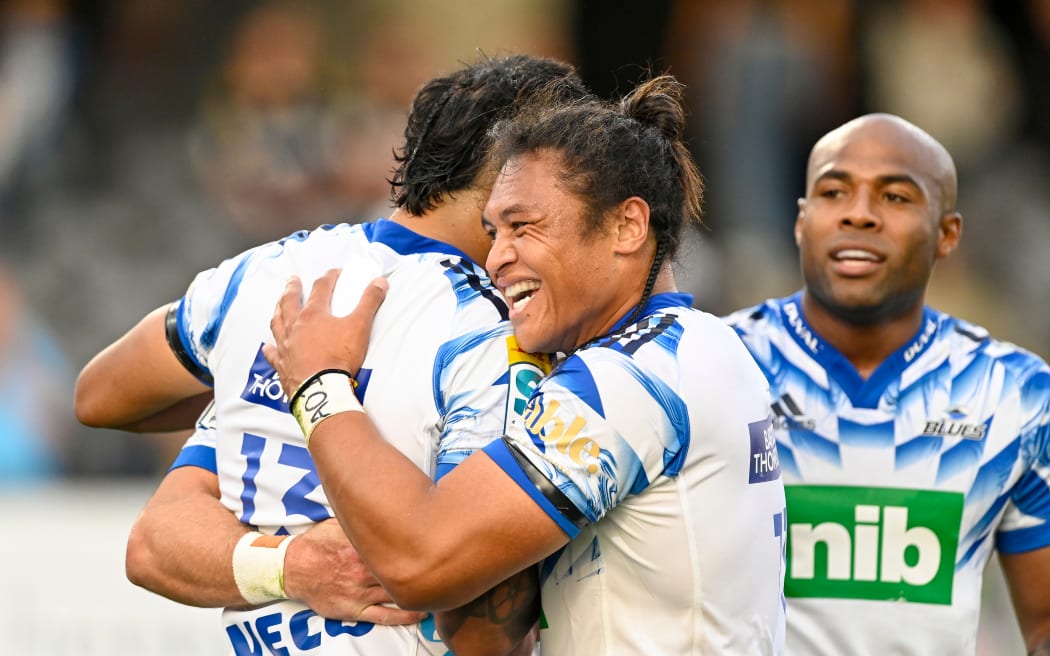
Caleb Clarke with his Blues team-mates. Photo: BLAKE ARMSTRONG
Clarke, the father of All Blacks and Blues wing Caleb Clarke, said coaches and others in similar positions of authority have a high level of influence over a player's experience.
He believes cultural education is key to ensuring players of all backgrounds feel welcomed and included.
"Pasifika are taught from a young age the values of faka'apa'apa or fa'aaloalo (respect) and alofa (love). Respect is massive. When we are speaking to an authority figure in Pacific culture, we sit with our eyes lowered in respect to the elder, the Matai, the chief, minister etc we are talking to.
"So you can imagine as a five year old, going to school after being at home with your parents in your world and being raised with these values and the first thing the teacher says to you is, 'Look at me', hahahaha. As a kid you're trying to exercise the values your parents have taught you and so you look down as it's your teacher, a person in authority. The teacher is then going 'there's something wrong with this kid they won't look at me and I'm telling them to look at me'. So you can see the clash, not necessarily of cultures or values, the value of respecting authority is the same, but of the way that the kids are raised and taught to express those values."
"We have a saying that for Pacific, the individual exists in relation to their family to their whānau, it's not an I it's a we, a very collective type of community. So when you're working with young primary or secondary school people that you don't just engage with the individual but their family as well. You have young men and women who are 17, 18 years old and they are still a big part of their family and they're making collective decisions with their parents.
"So it's often a challenge or a clash of two worlds when an individual has been asked to make an decision in a western context, when they're finding it really hard because those decisions are typically made collectively with their family. So once there's an understanding about the way different cultures work, then that brings a greater understanding of the player."
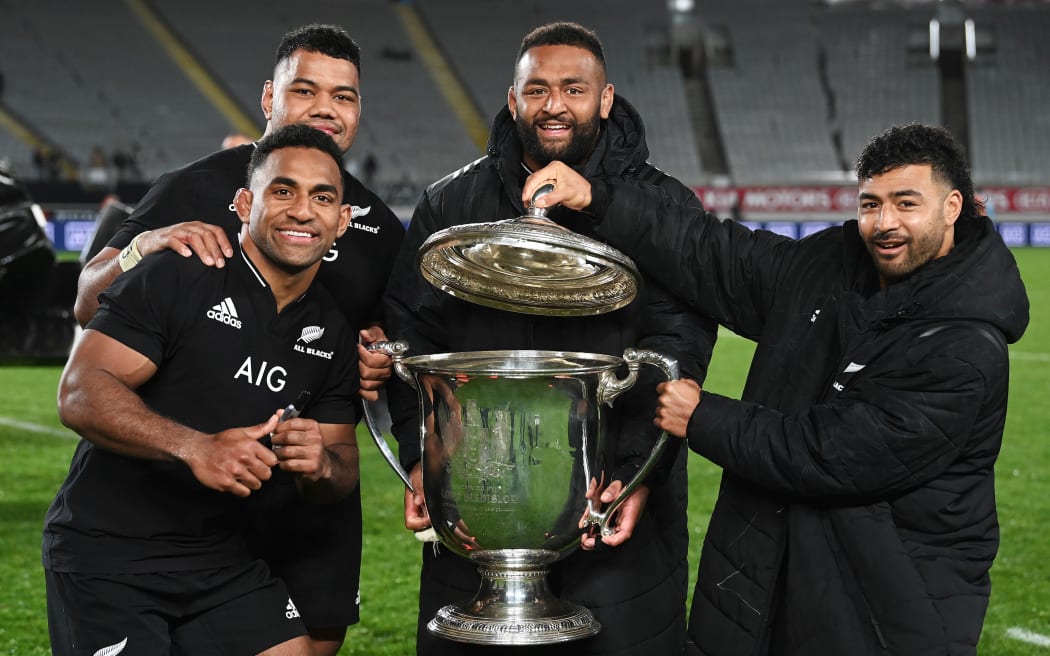
Photo: PHOTOSPORT
While Clarke believes the pathways for Pasifika players to reach their on-field goals are clear and well established, but he concedes Pasifika are lacking representation in off-field roles in rugby, particularly governance and administration.
"So we (NZR) need to constantly ask ourselves, how can we do better, how can we connect better and engage better with people of different cultures."
"The Pacific strategy is a huge step in the right direction. It's a stake in the ground that New Zealand Rugby wants to recognise the contribution of Pacific players to our game. We feel like we've recognised their on field contribution, but we need to make more effort in growing opportunities for Pacific off the field. We realise that for us to have better engagement with Pacific communities, New Zealand Rugby must build capacity into our rugby world for more Pacific to be in those spaces those none playing roles."
"This is the first Pacific strategy that any New Zealand National Sporting Organisation (NSO) has developed. It's the first in terms of global rugby organisations. So I hope this strategy is a template for other NSOs or other rugby nations to recognise we have growing Pacific communities in our games. But the strategy has to reach all levels of the game to work, club rugby, heartland unions and provinces etc."
"There is capacity and capability in rugby for Pacific to have these governance roles in rugby. Really it's the promotion of those roles to our Pacific communities needs to lift. It's often about accessibility but in this case it's more about promotion. The capability in Pacific communities is there."
Clarke said NZR won't make any of their Pasifika programmes mandatory for clubs, provinces or Super Rugby teams.
He said those stakeholders already have a strong desire to engage with the Pacific strategy.
"We've started developing a cultural competency and cultural safety programme for our Provincial Unions that will be available to our Super Rugby clubs as well. We are collecting data to figure out what's the contribution of Pacific to rugby at all levels at the moment. That way we can figure out they key areas and roles where Pacific people aren't featuring and how do we engage our communities to give them more access to those spaces."


